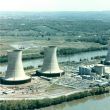Remembering what’s complementary, what’s central
By Kayhan Barzegar, January 28, 2013
In their first round-essays, the three authors in this Roundtable asserted two things in common, albeit in different ways: first, that a narrow line separates peaceful nuclear activities from nuclear proliferation, and it is critical that members of the Nuclear Suppliers Group (NSG) strike a balance between the two; and second, that the NSG should make greater efforts to foster cooperation in nuclear energy in order to help address developing nations' growing demand for energy in the service of sustainable development.
Raymund Jose G. Quilop notes a burgeoning "nuclear renaissance" in Southeast Asia. Something similar is occurring in the Middle East, with the United Arab Emirates (UAE) hoping to bring its first reactor on line in 2017 and Saudi Arabia entertaining ambitious plans for a nuclear sector of its own. The UAE has signed a well-publicized nuclear cooperation agreement with the United States, and Saudi Arabia has signed nuclear cooperation agreements with countries including France, Argentina, China, and South Korea.
But in the nuclear arena, politics can interfere with technological transfers, as Iran's nuclear program demonstrates. Since the stand-off over the program began in 2002, differences between Iran's viewpoint and those of some prominent Western members of the NSG (the United States, France, Britain, and Germany) have caused the dispute to go beyond the realm of national prerogatives and the need for greater energy supplies. The impasse has become connected instead to larger issues of regional and international security.
No confusion. Commenting on the stand-off, my colleague Rajiv Nayan asserted that in my first essay I confused the functions of the NSG and the Nuclear Non-Proliferation Treaty (NPT). I suffer from no such confusion. The NSG was created to complement the treaty, but in the course of carrying out its activities it has become an instrument for implementing a discriminatory nonproliferation regime. In so doing, it has weakened one of the treaty's pillars — the idea that peaceful uses of nuclear energy should be encouraged. This happens to be the pillar that matters most to developing countries.
The NSG, of course, was established as an attempt by a number of NPT signatories to prevent the diversion of materials that could be used to manufacture a nuclear weapon, but two fundamental issues concerning the group's relationship with the treaty regime must not be forgotten. First, it is the International Atomic Energy Agency (IAEA) that is entrusted with carrying out nuclear safeguards and that monitors whether or not a country adheres to the treaty's provisions. Second, the first legal obligation of NSG members is to the treaty itself — and the treaty prevents nuclear transfers that would allow non-nuclear weapon states to acquire nuclear weapons. This obligation would seem to be violated by the waiver that the NSG granted to India in 2008. Meanwhile, the NSG refuses to conduct business with Iran, a treaty signatory, and thus it fails to operate within the spirit of the NPT, the very treaty it is intended to complement.
Nayan also writes that "Iran's proliferation record is mixed, and this is the reason for its current difficulties." Here he repeats the assertions of some nuclear weapon states, missing the fact that Iran's difficulties with the West are more related to politics than to transfers of nuclear technology per se. The impasse over Iran's nuclear program must be considered in the broader context of Middle East politics, and especially Israel's nuclear monopoly in the region.
No one can deny that Iran has long been a keen supporter of the treaty. Nor that Iran's nuclear activities operate under IAEA oversight. Again, the squabble about Iran's nuclear program has more to do with the country's stance on strategic and security issues than with its proliferation track record. Tehran has had opportunities in the past to withdraw from the treaty but has chosen to stay within it, for the sake of transparency and of acting within the international safeguards system. Indeed, under Article X, Iran might have legitimately withdrawn from the treaty after India and Pakistan tested nuclear devices in 1998.
Topics: Nuclear Energy, Nuclear Weapons
Share: [addthis tool="addthis_inline_share_toolbox"]














